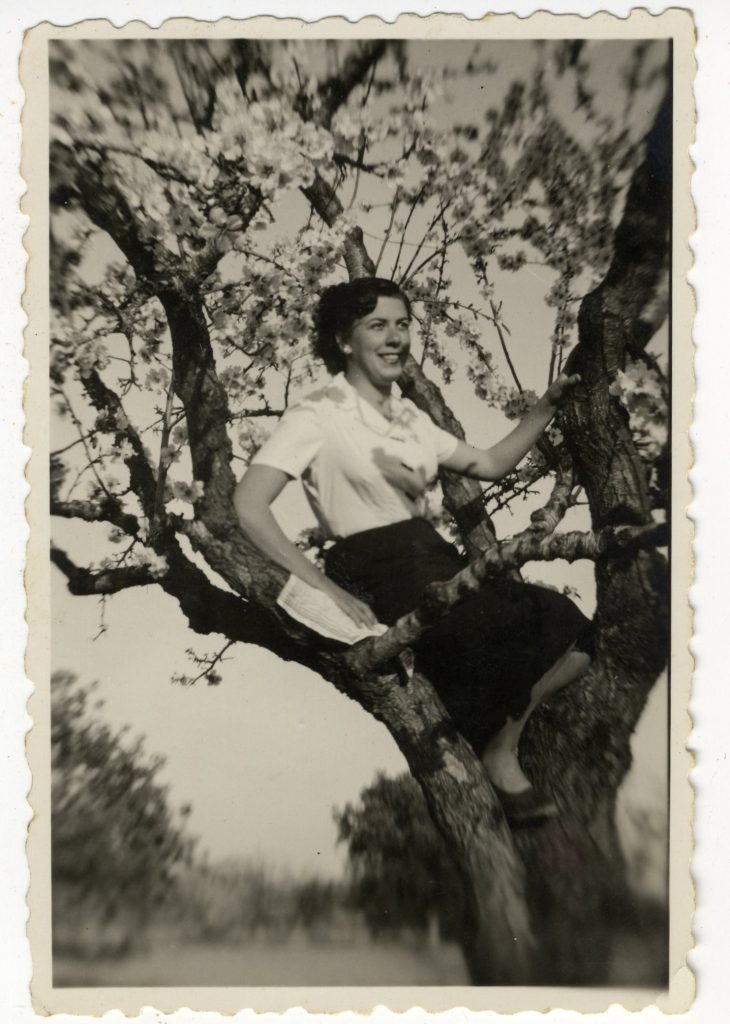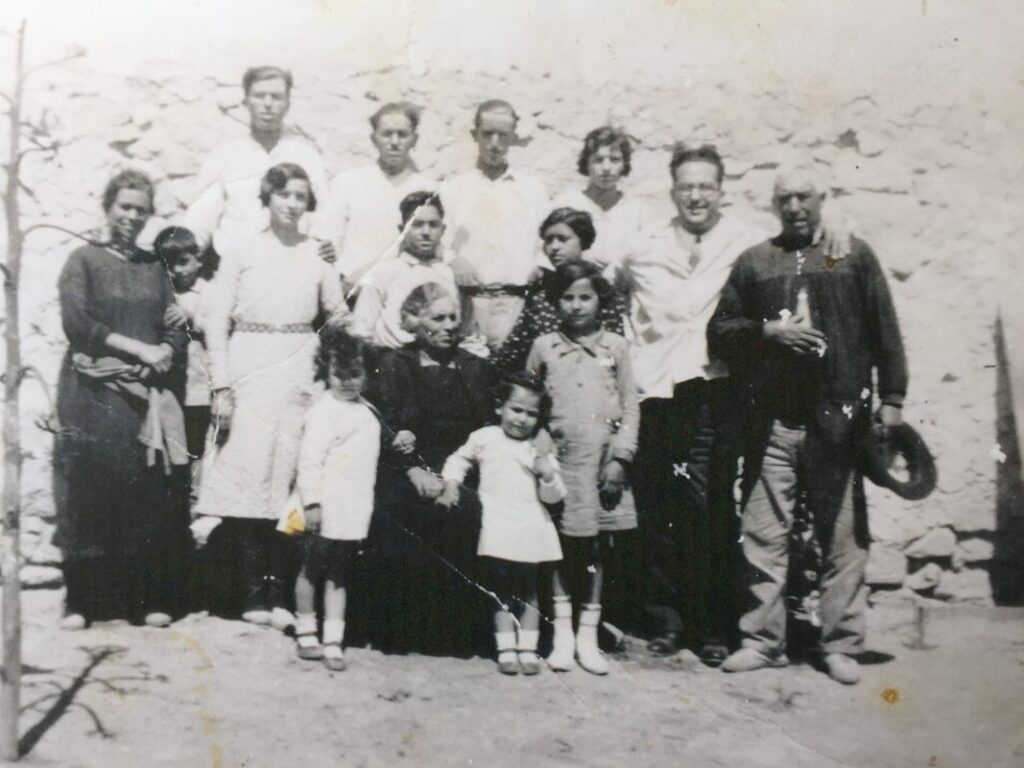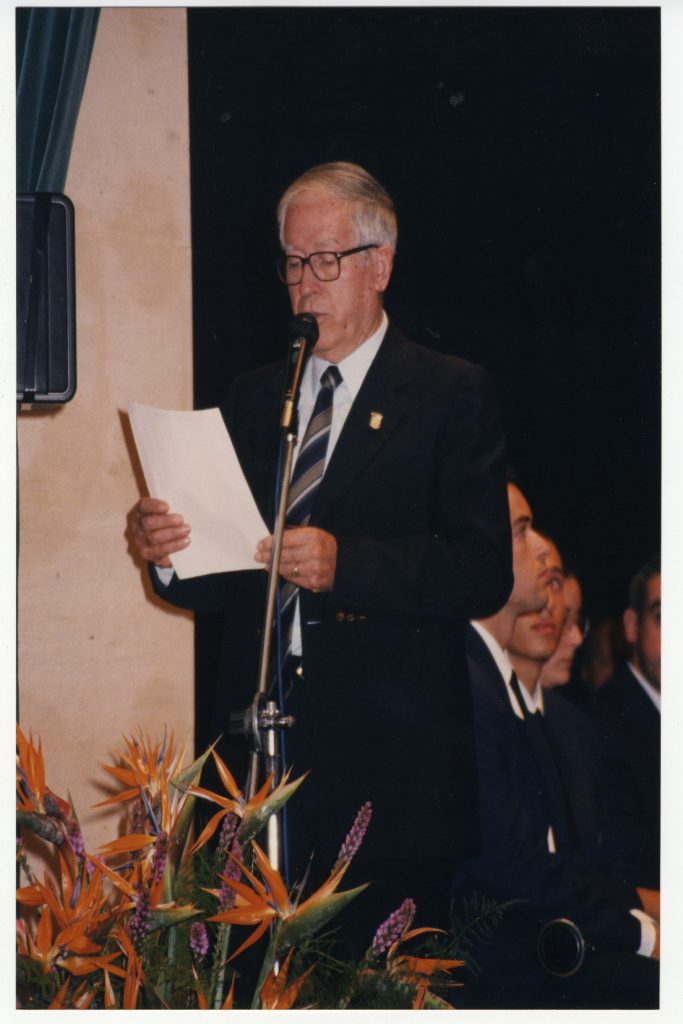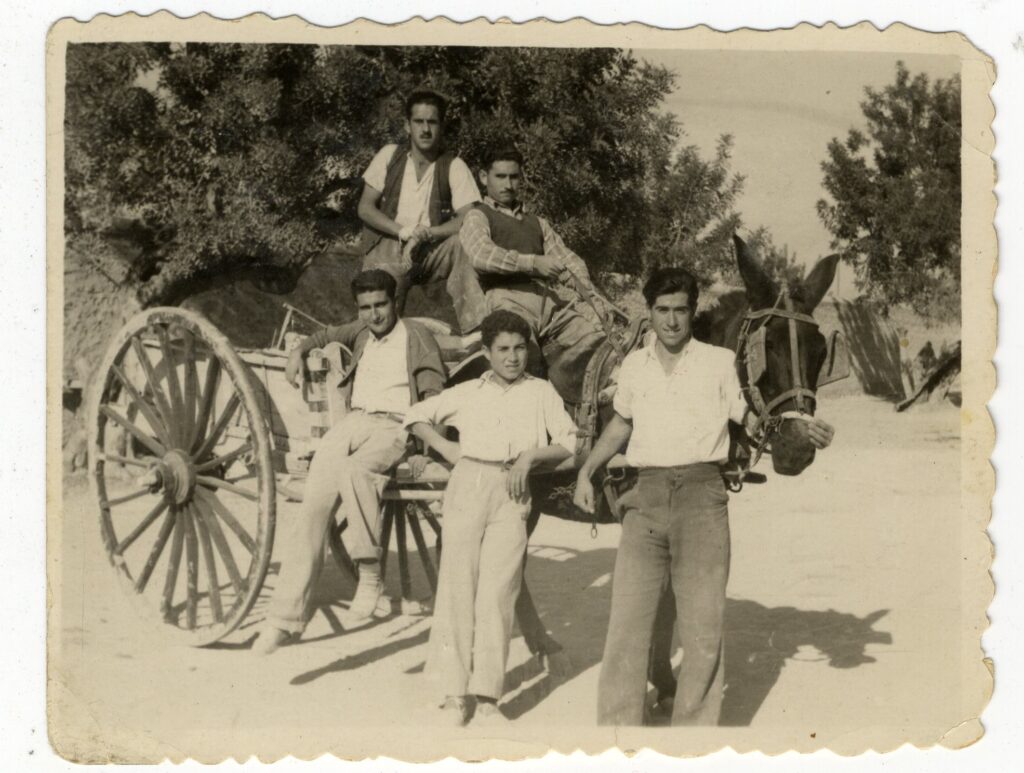Isidro Buades
They called him Feliu when he was a boy, because his name was Rafael, and being so small, well, Rafeliu, and Rafeliu in the end he got Feliu. He was small until he was thirteen and from then on he began to develop and became a robust and healthy big man. Feliu was born in La Huerta and grew up there, and it seemed to him that he was in the most beautiful place in the world, although sometimes he wondered if this was because he had not seen anything else. He doubted that there was another place with a bluer sky and a luminosity like that of his land.
The fields with the incipient sowing and those almond trees blooming in calm February, snowing the tender green of the ground with their petals of pure whiteness, were for him the supreme beauty of pulsating nature. Feliu would climb the defense towers, fortresses from 1594 whose construction was still standing intact, to contemplate the wonderful spectacle of the dawn, and he would see with infinite emotion the fiery disk of the sun emerge from the waters of the Mediterranean, transparent waters in the who enjoyed swimming almost every day of the year. Their land was fertile and diverse and appreciated vegetables were produced that traveled to distant countries.
His land was wonderful, but one day he had to abandon it, the sinister clarion of war sounded and full of strength and illusions, he marched into combat. There he distinguished himself for his dedication and bravery, for which he was rewarded in honors and stars, but as after much fighting he lost the last battle, he had to take refuge in a friendly country that gave him shelter and after twenty years of nostalgic absence, he returned to his homeland. lares.
He arrived in the city on a rainy and cold December morning and leaving the railway station he took tram number four that would take him to his beloved Huerta. As soon as he left the city he noticed that there were many clearings in the almond fields. Some uncultivated plots and new buildings, as well as some increase in vehicle traffic on the old N-332.

Elvira, Isidro’s wife in Albufereta (Alicante). AMSJA
Already in the middle of the Garden, large plantations of tomatoes like I had never seen before. When he arrived home his parents were no longer present, and the other relatives recognized him because he was carrying a suitcase with foreign stickers. His hair was completely white and he had lost the gardener’s appearance of yesteryear.
The next day, anxious as he was to see the Orchard, he headed towards it, and soon realized that it had begun to disappear, because although there were some important tomato plantations from foreign companies, the disappearance of almost half of the almond trees was notorious and The pruning and plowing work was far from the times of his youth. Feliu observed the new buildings and the many cars with foreign license plates that were driving by there, as he also observed that the sky was still the same blue as always and the sun was the implacable Lorenzo of the old days of harvesting and threshing, and he understood that His beloved Huerta had begun the safe path that would lead it to be a splendid area of progress and tourism of international fame.
Feliu was not wrong, because in lands where licorice was found and the lark nested there are today golf courses, where the path from the old Raiguero to the Huerta beach, there is a spacious road with a modern structure, or in the almond grove of Sarrió the most beautiful avenue.
Isidro Buades Ripoll. Official Chronicler of Sant Joan d’Alacant
Did you know ...?

Mr.Isidro Buades Ripoll was appointed Official Chronicler of the Town of Sant Joan d’Alacant on November 24, 1992. Almost a quarter of a century later he remains committed to the cause and to the service of the people where he was born. Mr. Isidro Buades is one of the most important, beloved and essential people to know what the municipality of Sant Joan d’Alacant was and, therefore, what it is today, its Orchard and its customs. Currently, the Department of Culture through the Municipal Library has digitized all of Mr. Isidro’s work, in addition to the bulletins of the AsociaciónCulturalLloixa.
Mr. Isidro was born on November 12, 1928 in the Huerta de Alicante, in the Santiago de la Albufereta estate and tower on lands of the Alicante municipality but belonged to the Parish of Sant Joan d’Alacant, with which he has been living among the neighboring municipalities. Mr. Isidro lived from agriculture until he was 25 years old and later dedicated himself to the transportation sector. Over the years the connection with the Santjoaner municipality became greater, his residence, the birth of his children and the tasks typical of a farmer such as attending the water market or taking a field tool to repair or even grinding grain in the Mill. Maigmona’s house.
Mr. Isidro, despite leaving the Huerta, always kept it in mind, and knew how to combine his true vocation, writing, with gardening traditions, which he captured on paper throughout his life telling stories passed on to him by older people.
When the municipality of Sant Joan d’Alacant was left without a chronicler, the municipal corporation did not hesitate in having him continue this work and Mr. Isidro accepted the position with great enthusiasm. On October 9, 2011, the year in which the twentieth anniversary of his appointment as chronicler was celebrated, he was honored in the town, being a very emotional moment for him and his family.
Mr. Isidro was the seventh child of the family. Their parents were Mrs. Magdalena Ripoll Pérez, a good woman and excellent mother, and Mr. José Buades Terol, who was the mayor of Orgegia and Albufereta during the reign of Alfonso XIII until the first years of the Franco dictatorship. During the Civil War, his father knew how to maintain constitutional order in the Alicante party, protecting people persecuted for their ideology in his home. Due to the respect in which he was held, neither he nor his wards were ever molested, regardless of the party to which they belonged.

Likewise, Mr. José Buades was vice president of the Orchard Irrigation Union of the Tibi Reservoir and also a transmitter and expert in the Customary Law of the Orchard ‘els Costums’ and for this reason, due to his seriousness and his good manhood, he was required to solve problems of division of inheritances or in the application of ancient rights and duties in plantations, irrigation, passages, obligations with the fruits and care of trees on boundaries and all the other ways and means of doing things well in the Huerta de Alicante. This gardening knowledge is inherited by D. Isidro. On February 12, 1942 in the Torre Santiago, his father died at the age of 63, who would be baptized by the neighborhood as ‘El Pare de l’Horta’. On May 11, 2012, at the request of the Alicante Vivo Association, the José Buades Terol Park was inaugurated in his memory.
His maternal grandparents were called Mr. Ramón Ripoll Iborra (Ivorra) and Ms. Magdalena Pérez Gosálvez, a promising young girl who came to live in the house of the Counts of Soto Ameno on the Soto estate. His paternal grandparents were called Mrs. Josefa Terol y Lledó and Mr. Manuel Buades Baeza.

Isidro Buades and company. 1948, Women’s Psychiatric Farm, former, Finca Prytz (Sant Joan d’Alacant)
Mr. Isidro’s family linked to agriculture had vineyards in the Alicante Orchard of Monastrell grapes until they succumbed to phylloxera, but there were small dry vineyards that were not affected. On his parents’ Albufereta estate, where his grandfather was, first a landlord until his father bought it, they produced up to 20,000 liters of fondillon wine annually, which were sold to France.
In 1958 Isidro married Mrs. Elvira García Santonja, a very beloved woman whose great humor stood out. Mr. Isidro is the father of two daughters (Ana María and Mª Elvira) and a son (José Isidro) who have provided him with 5 grandchildren. Mr. Isidro, died in February 2019 at the age of 90, he served as a chronicler until his last days and we owe him all the gardening heritage that has endured in Sant Joan d’Alacant and that is compiled in digital format for the delight of all. . Thank you Mr. Isidro for your generosity and wisdom.
